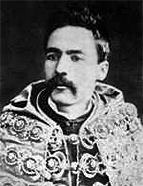

The discussions concerning the nature of law were particularly intense at the end of the 60s, as illustrated by the controversy between Rodrigues de Brito and Vicente Ferrer, which primarily revolved around a philosophical issue. It was precisely in 1868, when he was just 24 years old, that Lopes Praça published História da Filosofia em Portugal nas suas relações com o movimento geral da filosofia [History of Philosophy in Portugal in its relationship with the general movement of philosophy], a book that inherited this issue by aiming to extensively promote philosophical thought in Portugal, which entailed a thorough examination of philosophy by our author. This is, on one hand, the author's first work of a historical nature and, on the other, the one that has had the most significant impact to this day, as evidenced by its various re-editions. Despite this, he was more renowned during his lifetime for his studies in law and State theory. The two volumes originally intended for this work on the history of philosophy have been reduced to one, and he did not pursue this line of study further, although we can still find an article in A Renascença, around 1878, concerning the history of science and philosophy in Portugal, addressing positivist philosophy.
The jurist would dedicate his entire life to teaching. As a professor, his tone was neither controversial nor disruptive. As a law professor at the University of Coimbra, he began to gather material for the history of the Portuguese state and Portuguese law. In addition to its Coleção de Leis e Subsídios para o Estudo do Direito Constitucional Português [Collection of Laws and Elements for the Study of Portuguese Constitutional Law] (1893-1894), there are also reports of an unsuccessful plan to write História do Direito Pátrio [History of National Law] when he was appointed as a professor to the court (Mexia de Mendia, José Joaquim Lopes Praça (1844-1920) 1999, pp. 65-71). As his writings seemed to be more neutral and sought to be scientific, they attracted acceptance from moderate monarchists.
This work is financed by national funds through FCT - Foundation for Science and Technology, I.P, in the scope of the projects UIDB/04311/2020 and UIDP/04311/2020.
